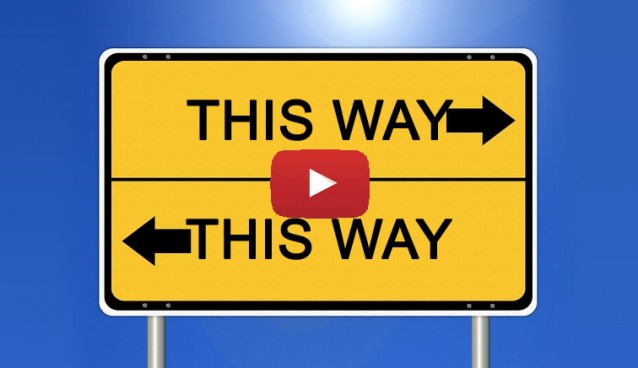False Dichotomy: Left v. Right in the Ballot Box

Would it surprise you to know that choosing between left and right is not a real choice when you vote? Many people instinctively, or through experience, come to this realisation. Comedian Russell Brand made headlines during the last UK General Election by vocalising the pointlessness of voting and many ordinary people have simply given up voting saying ‘it makes no difference’. Perhaps if we understood why our vote seems to do so little we might choose differently and could change politics wholesale. Your vote can make a difference, but only if you get beyond rhetoric and look instead at what is actually happening.
In his video “The Collectivist Conspiracy” G. Edward Griffin explains how and why your choice between left and right is a false choice and makes no more than superficial difference, along with exposing other tricks we fall for. Awareness of the trick is the first step to avoiding the trick.
“I think first of all it’s important to talk about and understand this left-right paradigm – what is this all about?
“Most of us including myself, for certain in my younger years, was brought up thinking you had to choose, if you were smart at least, you would have to choose politically between being on the right or the left. You had to have a political view and I thought, in those days I thought that the extreme right would be something like Fascism or Nazism and on the extreme left, of course, you would have Communism or Socialism just a little bit short of that.
“So that was the paradigm I was taught and it seemed to make sense at the time. But as I became more involved in these issues and learned more about them I began to realise that the basic philosophy between the so-called extreme left people, Communists and Socialists, and the so-called philosophy on the right, of the Fascists and the Nazis was really the same. How can this be? They’re supposed to be opposites of each other. Then I began to realise that there is something common to all these philosophies that was left out of my training and education, and that was the ideology of collectivism.
“I began to realise that the thing that was common to them all was something called Collectivism. That’s a word that is not very well used. It’s not very entrenched in the vocabulary of most people today but I found out that it was a very commonly used word about a century ago. People wrote a lot about Collectivism and the opposite of that would be Individualism. Those are two words that are, sort of, abandoned today but in my view I think they need to be recaptured and understood and used more.
“I realised that Communism and Fascism, the so called opposites, are merely variants of Collectivism. They are the same thing and they believe that the group is more important than the individual, for example, and the individual must be sacrificed if necessary for the greater good of the greater number. They believe that the state should be all powerful and that the people should obey the state for the greater good of the greater number and all of that sort of thing. They believe that rights are granted by the state, they are not part of a human being, they are not God given, they are not entrenched in his body and soul, they have to be granted by the state.
“All of these things, you look at them one by one, Communists and Fascists and Nazis and Socialists, they all believe that. So wherein lies the conflict you see in them? I began to question that and I realised that it’s partly a trick. In fact I think it’s a huge trick, it’s a great scam because people even today are thinking that they have to choose between the right and the left not realising that no matter which way they go they have accepted basically the same ideology underneath.
“Now it’s true that the leaders of these groups, like the Stalins of the world and the Adolf Hitlers and the Mao Tse Tungs of the world and so forth, the leaders of these groups on left and right will fight each other and they will go to war with each other and there will be tremendous battles as we saw in World War Two, for example. But what are they fighting over? Ideology? Not at all, because they agree on ideology. What they are fighting over is dominance – who is going to rule – that’s all they’re fighting over. And once you get that picture historically it’s not too difficult to see that that’s the same thing going on even today.
Watch the full program here:
